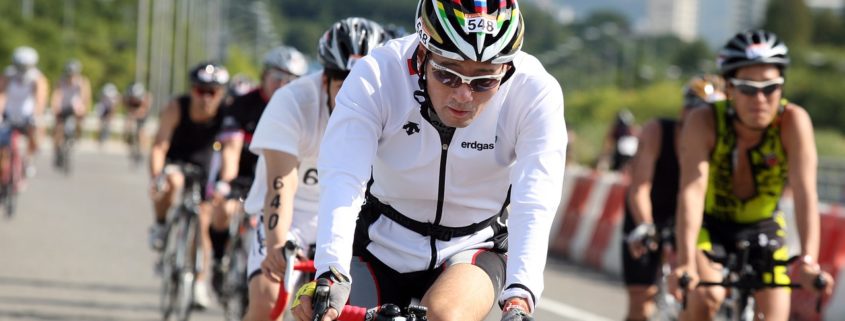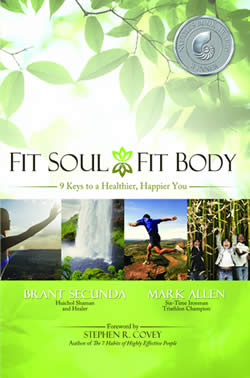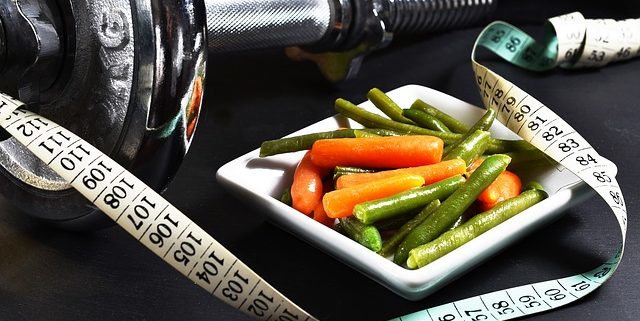6 Kinds of Stress — and How to Reduce Them Naturally
The common denominator in reducing stress, regardless of which type it is, is a balanced workout program. Moderate exercise, such as walking, is the key to overcoming the negativity and fatigue that so often accompany every type of stress. Here are the six kinds of stress and some additional prescriptions for reducing each of them.
#1: Emotional Stress
A recent study found that three quarters of Americans experience significant emotional stress weekly. When we’re undergoing emotional stress, our hormones get out of balance. Cortisol levels go up and DHEA levels go down; the coping hormones get depressed and the pleasure hormones don’t get released.
What to do about it: Respond with calmness. Acknowledge that a seemingly overwhelming task will get done in small acts that add up to a big result, like planting a field of corn one kernel at a time. Another solution is to clear your mind with laughter. Laughing almost instantly clears away emotional stress, like a defroster on a windshield.
#2: Sleep Deprivation–Induced Stress
Sleep is a natural medicine, pure and simple. But without adequate levels of restorative sleep, our bodies release cortisol, which sets up a stress cycle and causes a disruption in the sleep we do get.
What to do about it: To address mild insomnia, reduce your caffeine consumption. Avoid big meals late in the day, which can set up blood sugar swings and wake you up when insulin is overdoing its job. Keep alcohol consumption in the healthy zone–one drink a night. And finally, when your head hits the pillow, go over each of the day’s events and as you do, send it into an imaginary circle located outside your body, just in front of your heart. This helps you prepare for deep sleep without replaying your day over and over.
#3: Dietary Stress
An unbalanced diet causes stress in the body. So does eating too little or too much, which can disrupt your digestive system and hinder your body’s ability to recover from physical exertion or even a day of overwork at the office.
What to do about it: Let your dietary habits be an antidote to, not a stimulator of, stress. Avoid simple sugars and choose carbohydrates that are from whole grains, fresh vegetables, and small amounts of fruit. Cut back on or cut out caffeine. Add some healthy oils–like cold-pressed olive oil or omega 3 fish oil–to help balance your hormones. Eat a healthy amount of protein, which helps build muscle and counters the effects of too many carbs. And eat a good breakfast within an hour of waking, and then frequent small meals every 3-4 hours.
#4: Physical Stress
This kind of stress typically occurs from exerting yourself too much in a workout, but it also affects those who have the type of job that demands a lot physically, such as a construction worker, landscaper, or waiter.
What to do about it: Be mindful of the symptoms: irritability, inability to sleep, loss of appetite, overall fatigue that lasts 2-3 days, chronic muscle soreness, lack of motivation, injury, and illness. The key to combating physical stress is to get stronger, but to build up strength in a slow, steady, balanced way. See chapter 5 of our book, Fit Soul, Fit Body, to learn how to customize a conditioning program that addresses your particular habits, lifestyle challenges, and symptoms.
#5: Chemical Stress
Chemical stress occurs when your body has to get rid of compounds that are harmful or toxic to it. Most such toxins come from the external environment–everything from the air you breathe, to the water and food you eat, to the home and office you inhabit.
What to do about it: Eliminate caffeine, alcohol, sugar, and chemical-laden processed foods. Eat foods grown without insecticides. Drink purified water. Clean up your inside air with an air filter and fresh outside air. Use natural cleaners. Avoid personal care products that are synthetic and laden with unknown chemicals. Being a conscientious consumer will help you overcome most chemical sensitivities.
#6: Inflammation-Induced Stress
Inflammation is a side effect of stress, but it’s also a promoter of stress on the body. Inflammation comes from a number of things, including working out too hard, eating a poor diet, being overweight, and not getting enough omega 3 in the diet.
What to do about it: Balance your fat intake. Reduce saturated fats and oils while increasing your intake of omega 3 oils (fish oil, beans, walnuts, flaxseed, olive oil). Get consistent, moderate heart-rate exercise to burn excess fat stored in your body, if this is an issue. Limit your intake of carbohydrates. Omit foods from your diet that make you feel tired, weak, or bloated after eating them, or that give you negative reactions, such as itchy skin or a stuffy nose. The most common culprits are shellfish, meat, eggs, dairy, soy, wheat, some fruits, and nuts.
Reposted from mariashriver.com










 “Breathe in” the sound of running water
“Breathe in” the sound of running water “Breathe in” the ocean sound
“Breathe in” the ocean sound Connect to “Father Sun”
Connect to “Father Sun” Connect with loved ones — in nature
Connect with loved ones — in nature Be a part of nature
Be a part of nature Draw energy from the earth
Draw energy from the earth
